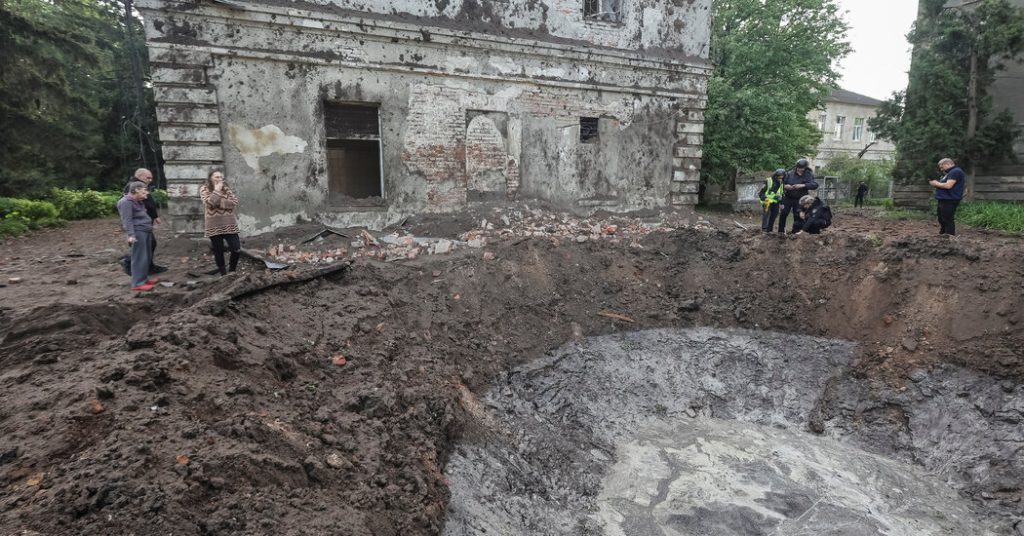Russian missiles targeted Ukraine’s energy grid, while Ukrainian drones retaliated by attacking oil and gas refineries and other critical infrastructure within Russia. The Ukrainian Air Force was able to intercept a significant number of Russian missiles, but damage was still inflicted on power plants across three regions. In response, Ukrainian drones targeted two oil refineries, a bitumen plant, and a military airfield in the Krasnodar region of Russia, as well as the Kushchevsk airfield and the Ilsky and Slavyansk oil refineries, according to the Security Service of Ukraine.
The Kremlin has been tight-lipped about the impact of Ukrainian attacks on Russia and has cracked down on dissent within the country. Despite Russian denials, Britain’s military intelligence agency estimated that Ukrainian strikes had disrupted 10% of Russia’s oil refinery capacity. In response to the attacks, Russia imposed a six-month ban on gasoline exports to avoid shortages and price spikes. The attacks have sparked tensions between Ukraine and the United States, with the Biden administration expressing concerns about potential Russian retaliation and global energy market implications.
While the Biden administration has criticized Ukraine’s strikes on Russian oil and gas facilities, other allies have supported Ukraine’s efforts to target what it considers legitimate military targets. About a third of Russia’s national budget comes from oil and gas, making these facilities crucial targets for Ukraine to undermine Russia’s wartime economy. NATO Secretary General Jens Stoltenberg has defended Ukraine’s right to strike legitimate military targets outside its territory to defend itself, highlighting the importance of disrupting Russia’s ability to wage war by targeting essential oil products.
Russia’s continued strikes on Ukraine’s energy grid, particularly on thermal and hydro power plants, have severely impacted the country’s power generation capacity. Before the most recent attack, Russia had already destroyed 80% of Ukraine’s thermal power plants. The cumulative impact of these attacks is growing, posing lasting problems for Ukraine’s energy infrastructure. Despite receiving American military assistance, Ukraine’s air defense systems remain stretched and short on ammunition, leaving the country vulnerable to Russian ballistic missiles.
Ukraine is urgently seeking additional Patriot systems and missiles to defend against Russian attacks. After Russia targeted Ukraine’s energy grid in the winter of 2022-23, allies supplied three Patriot batteries, but the country is now running low on interceptor missiles. Germany has committed to providing a fourth Patriot battery, and Ukrainian officials are working to secure more systems and munitions to bolster their defense capabilities. The ongoing conflict between Russia and Ukraine continues to evolve, with both sides employing strategic military tactics and facing critical challenges in the energy sector.
In conclusion, the conflict between Russia and Ukraine has escalated with retaliatory strikes targeting critical infrastructure on both sides. The impact of these attacks on the energy sector has significant economic and humanitarian implications, with lasting damage to power generation capacity in Ukraine. As both countries navigate these challenges, the international community plays a crucial role in providing support and resources to mitigate the effects of the conflict and aid in the defense and recovery efforts of Ukraine.















